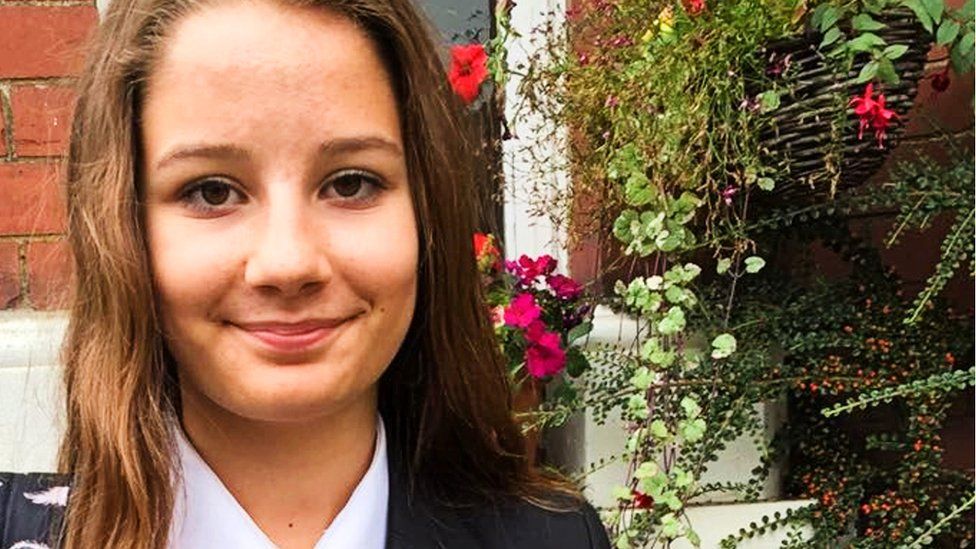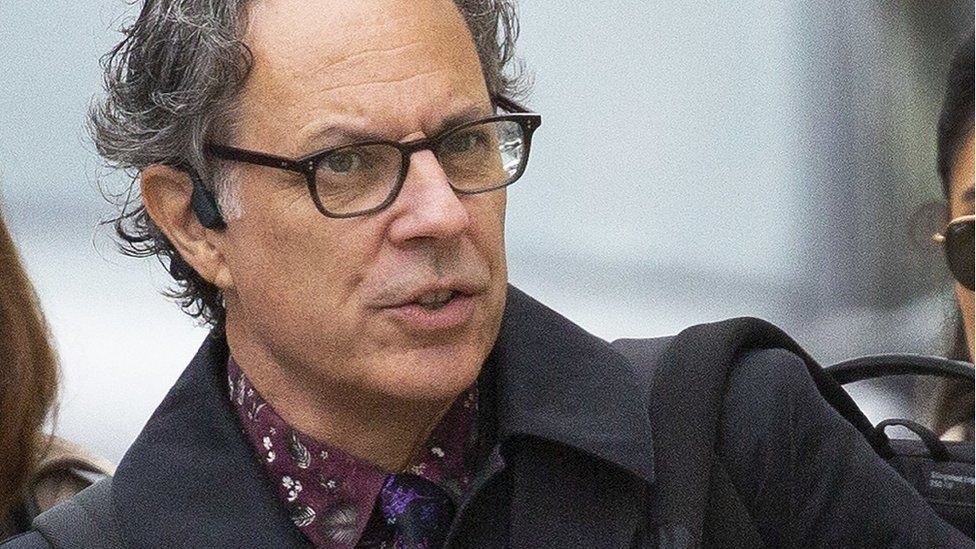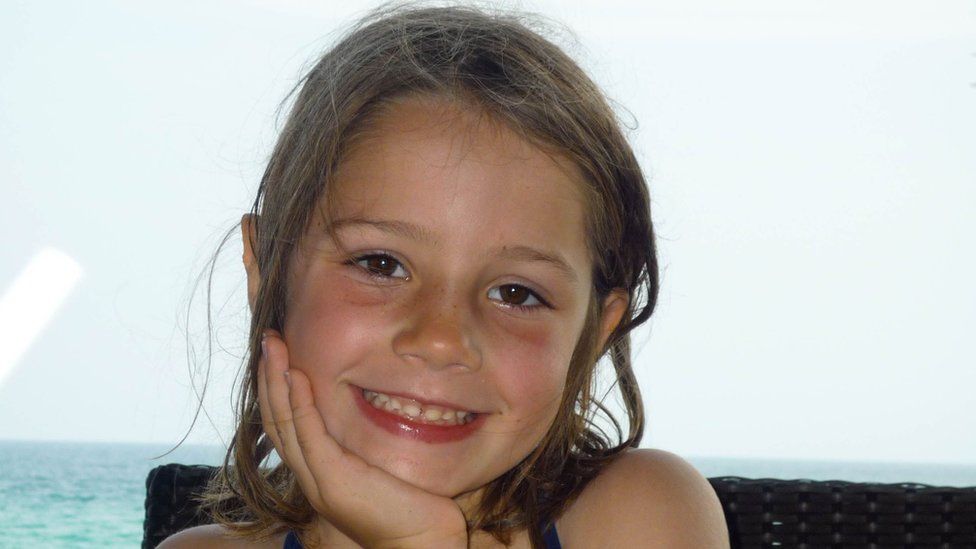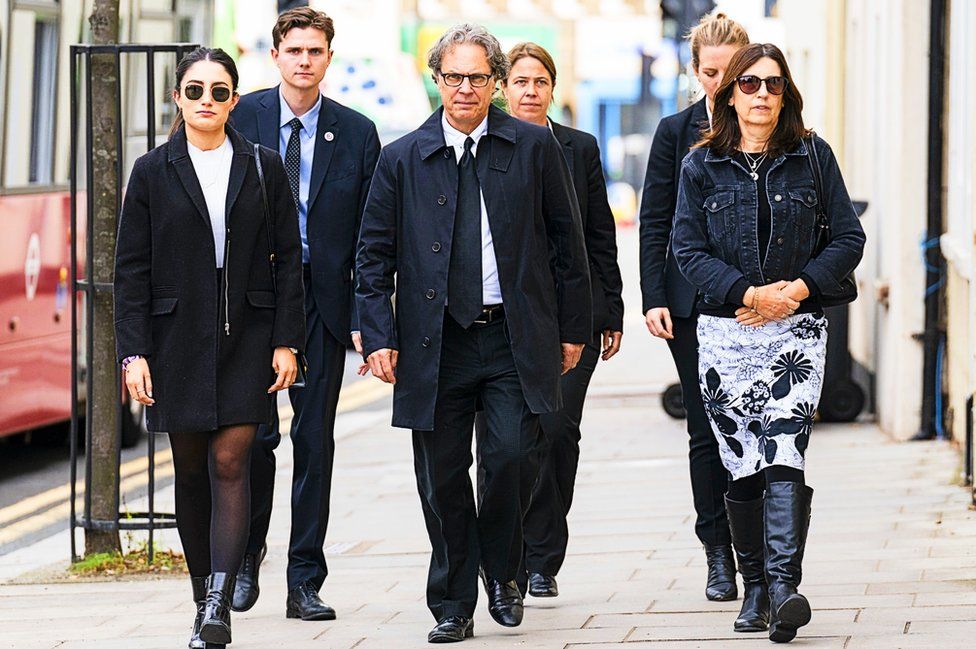Tech firms should “stop monetising misery”, the father of Molly Russell says as her inquest ends.
 Image source, Russell family
Image source, Russell familyUnsafe online content contributed “in a more than minimal way” to the death of a girl who took her own life, an inquest has found.
Senior coroner Andrew Walker said material viewed by 14-year-old Molly Russell on social media “shouldn’t have been available for a child to see”.
Molly, from Harrow, viewed thousands of images of self-harm and suicide before she died in November 2017.
Mr Walker said: “It would not be safe to leave suicide as a conclusion.”
He told North London Coroner’s Court: “She died from an act of self-harm while suffering from depression and the negative effects of online content.”

Image source, PA Media
Molly’s father Ian Russell said after the hearing: “In the last week we’ve heard much about one tragic story – Molly’s story. Sadly, there are too many others similarly affected right now.
“At this point I just want to say however dark it seems, there is always hope, and if you’re struggling please speak to someone you trust or one of the many wonderful support organisations, rather than engage with online content that may be harmful.
“Please do what you can to live long and stay strong.”

- If you’ve been affected by self-harm or emotional distress, help and support is available via the BBC Action Line

In a statement after the coroner’s conclusion, NSPCC chief executive Sir Peter Wanless said: “This should send shockwaves through Silicon Valley – tech companies must expect to be held to account when they put the safety of children second to commercial decisions.
“The magnitude of this moment for children everywhere cannot be understated.”

Image source, Russell family
Mr Walker said Molly, who had a depressive illness and was vulnerable due to her age, had been able to access content that was “most distressing”.
The senior coroner will now compile a report outlining his concerns. He is to write to Meta – the owner of Instagram – and Pinterest, as well as the government and Ofcom.
The head of health and wellbeing at Meta, Elizabeth Lagone, and Pinterest’s head of community operations, Judson Hoffman, appeared in person to give evidence during the teenager’s inquest. Mr Hoffman conceded Pinterest was “not safe” when Molly used it, and said he “deeply regrets” some of the content the teenager viewed.
Ms Lagone said posts described by the Russell family as “encouraging” suicide or self-harm were safe, but conceded a number of posts shown to the court would have violated Instagram’s policies.

Image source, PA Media

Remarks made by senior coroner Andrew Walker
“Molly Rose Russell died on 21 November 2017. Molly was 14 years old.
“Molly appeared a normal, healthy girl who was flourishing at school, having settled well into secondary school life and displayed an enthusiastic interest in the performing arts.
“However, Molly had become depressed, a common condition affecting children of this age. This then worsened into a depressive illness.
“Molly subscribed to a number of online sites.
“At the time that these sites were viewed by Molly some of these sites were not safe as they allowed access to adult content that should not have been available for a 14-year-old child to see.
“The way that the platforms operated meant that Molly had access to images, video clips and text concerning or concerned with self-harm, suicide or that were otherwise negative or depressing in nature.
“The platform operated in such a way using algorithms as to result, in some circumstances, of binge periods of images, video-clips and text, some of which were selected and provided without Molly requesting them.
“These binge periods, if involving this content, are likely to have had a negative effect of Molly.
“Some of this content romanticised acts of self-harm by young people on themselves. Other content sought to isolate and discourage discussion with those who may have been able to help.
“Molly turned to celebrities for help, not realising there was little prospect of a reply.
“In some cases, the content was particularly graphic, tending to portray self-harm and suicide as an inevitable consequence of a condition that could not be recovered from.
“The sites normalised her condition, focusing on a limited and irrational view without any counterbalance of normality.”

Follow BBC London on Facebook, Twitter and Instagram. Send your story ideas to hellobbclondon@bbc.co.uk